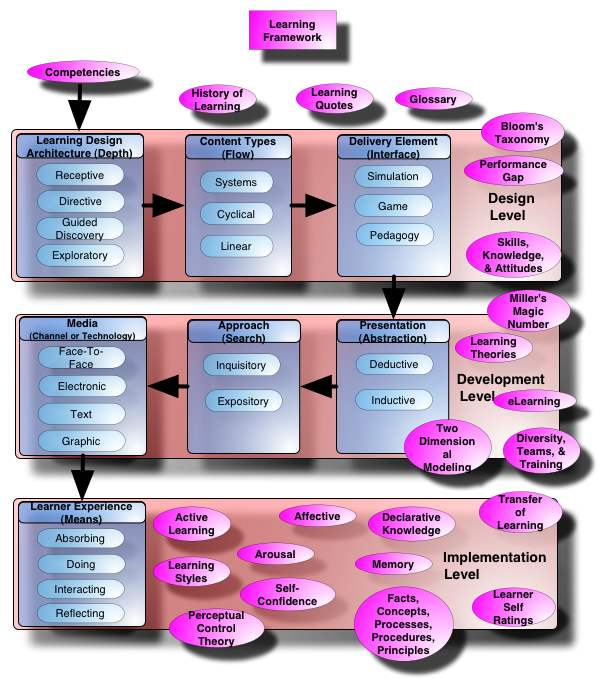Learning: Knowledge, Skills, and Attitudes (KSA)
KSA are the abilities and characteristics that enable a job holder to accomplish the activities described in a task statement that describes what the job holder does (Quinones, Ehrenstein, 1997).
In a learning environment, cognitive, psychomotor, & affective are KSA's counterparts that identify end states of training (objectives).
Learning Outcome Typology (Kraiger, et al., 1993)
- Cognitive (knowledge)
- Verbal Knowledge - factual and declarative knowledge (propositional knowledge) knowledge
- Knowledge Organization - how information and concepts are mentally arranged
- Metacognitive Strategies - allocation and regulation of cognitive resources
- Skill-Based (psychomotor)
- Compilation - routine development and procedure linkage
- Automaticity - ability to perform a task without Conscious monitoring and with other tasks
- Affective (attitudes)
- Attitude - attitude about learning, self-efficacy, perception about ability to perform, and goal setting
- Motivation - motivational disposition
Next Steps
For more detail on the above typology, see Learning Outcomes.
What does the A in KSA really mean — Attitudes or Abilities?
References
Kraiger, K., Ford, J., Salas, E. (1993). Application of cognitive, skill-based, and affective theories of learning outcomes to new methods of training evaluation. Journal of Applied Psychology, 78, 311-328.
Quinones, M.A. and Ehrenstein, A. (1997). Training for a Rapidly Changing Workplace: Applications of Psychological Research. Washington, D.C.: American Psychological Association, p. 154.

